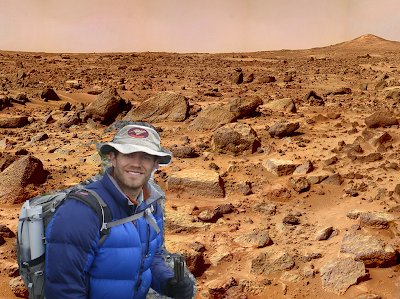By Jeremy Sueltenfuss, CNHP Wetland Mapping Specialist
Where there is water, there are wetlands. We all know (and if you don’t please become comfortable with) the fact that wetlands not only provide invaluable functions and services to ecosystems and humanity, but are also completely awesome! Wetlands filter water, provide habitat, and cycle nutrients in ways other ecosystems can’t. It is for this reason wetlands are acknowledged to be important features across the nation, and the world. While the Colorado Natural Heritage Program has historically focused its efforts on the wetlands within Colorado, we are looking to push the boundaries of wetland ecology to places where no ecologist has gone before.
Recent findings by NASA’s Opportunity Rover on Mars have triggered the scientific curiosity of the CNHP Wetland Ecology Team. Because of the images sent back by Opportunity, showing imprints of water loving microbes on Martian rocks, it has become clear that Mars used to be quite the place to be! Forget the search for general life on Mars, CNHP is now studying the wetlands that obviously used to exist on Mars!
“Make it so,” replied Joanna Lemly, the lead Wetland Ecologist replied when presented with the research idea. CNHP’s Wetland Mapppers, Gabrielle and Jeremy, are hard at work trying to get some halfway decent aerial imagery for the Martian surface. “I’m not quite sure what is so hard about obtaining these images, it’s not like we’re asking for photos of the bottom of the ocean!” lamented Jeremy, CNHP’s wetland mapping specialist.
 |
| Field work on Mars! (Background image of Mars ©NASA) |
Though field excursions can often be difficult, Laurie Gilligan, CNHP’s wetland field ecologist is up to the challenge. When asked whether she thought she could handle interplanetary travel in the pursuit of wetland science she replied, “Beam me up Scotty!”
While research deadlines remain loose, everyone is excited about the potential of this new research endeavor. “This gives us entirely new possibilities of assessing biodiversity on a whole new planet! The conservation possibilities are literally endless!” exclaimed Dave Anderson, a very excited CNHP director.
April Fools!




